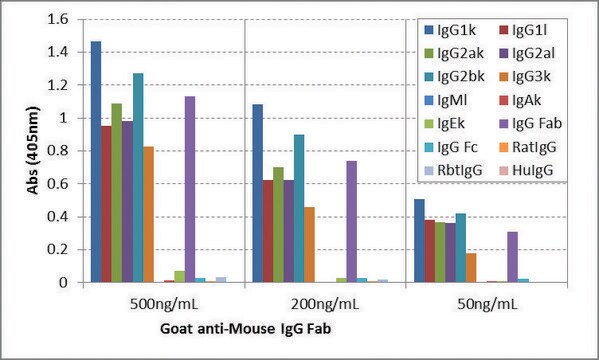SAB4200680
Anti-Biotin antibody, Mouse monoclonal
clone BN-34, purified from hybridoma cell culture
Synonym(s):
Monoclonal Anti-Biotin antibody produced in mouse, Bios II, Coenzyme R, D-Biotin, Vitamin B7, Vitamin H
About This Item
Recommended Products
biological source
mouse
Quality Level
antibody form
purified immunoglobulin
antibody product type
primary antibodies
clone
BN-34, monoclonal
form
buffered aqueous solution
species reactivity
canine, human, bovine, rat, mouse
concentration
~1 mg/mL
technique(s)
ELISA: suitable
immunocytochemistry: suitable
immunoprecipitation (IP): suitable
indirect ELISA: 0.15-0.3 μg/mL
western blot: suitable
shipped in
dry ice
storage temp.
−20°C
target post-translational modification
unmodified
General description
Immunogen
Biochem/physiol Actions
Physical form
Disclaimer
Not finding the right product?
Try our Product Selector Tool.
Storage Class Code
12 - Non Combustible Liquids
WGK
WGK 1
Flash Point(F)
Not applicable
Flash Point(C)
Not applicable
Certificates of Analysis (COA)
Search for Certificates of Analysis (COA) by entering the products Lot/Batch Number. Lot and Batch Numbers can be found on a product’s label following the words ‘Lot’ or ‘Batch’.
Already Own This Product?
Find documentation for the products that you have recently purchased in the Document Library.
Customers Also Viewed
Our team of scientists has experience in all areas of research including Life Science, Material Science, Chemical Synthesis, Chromatography, Analytical and many others.
Contact Technical Service










